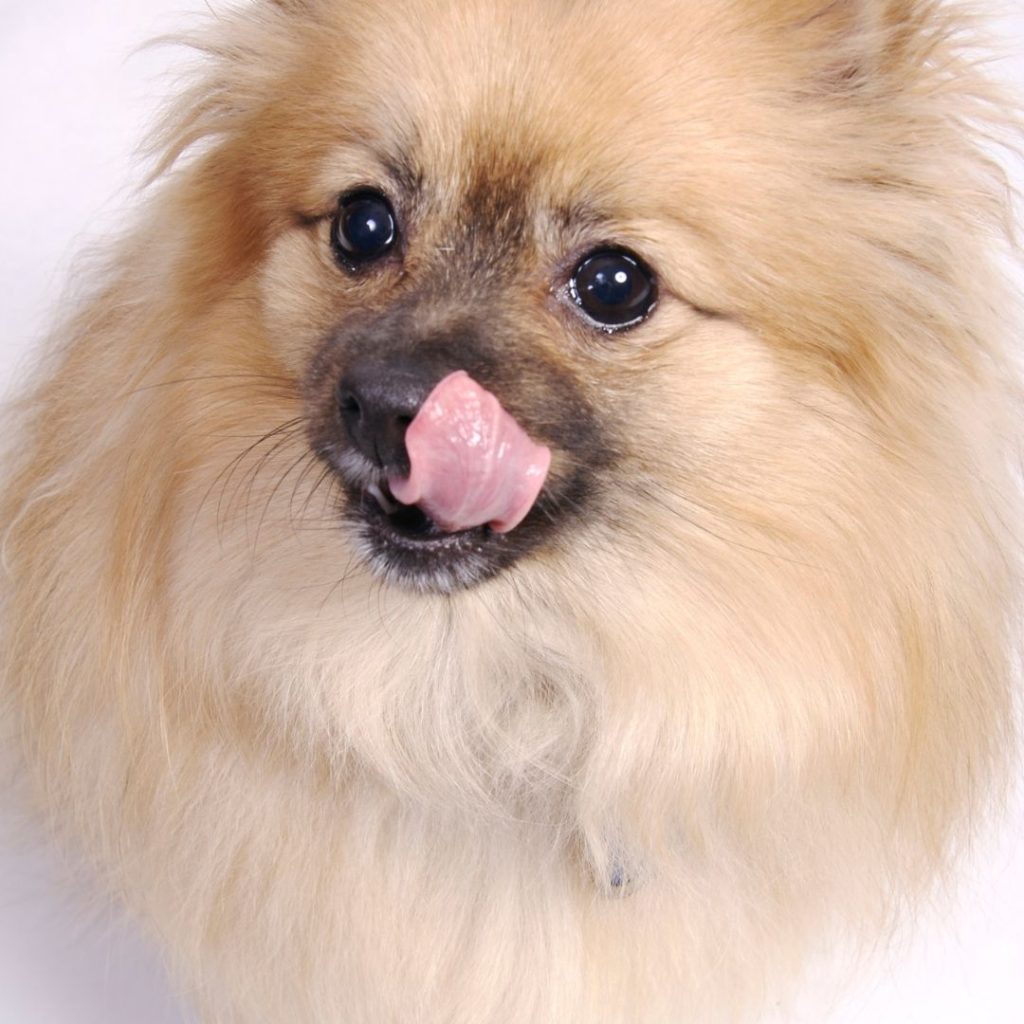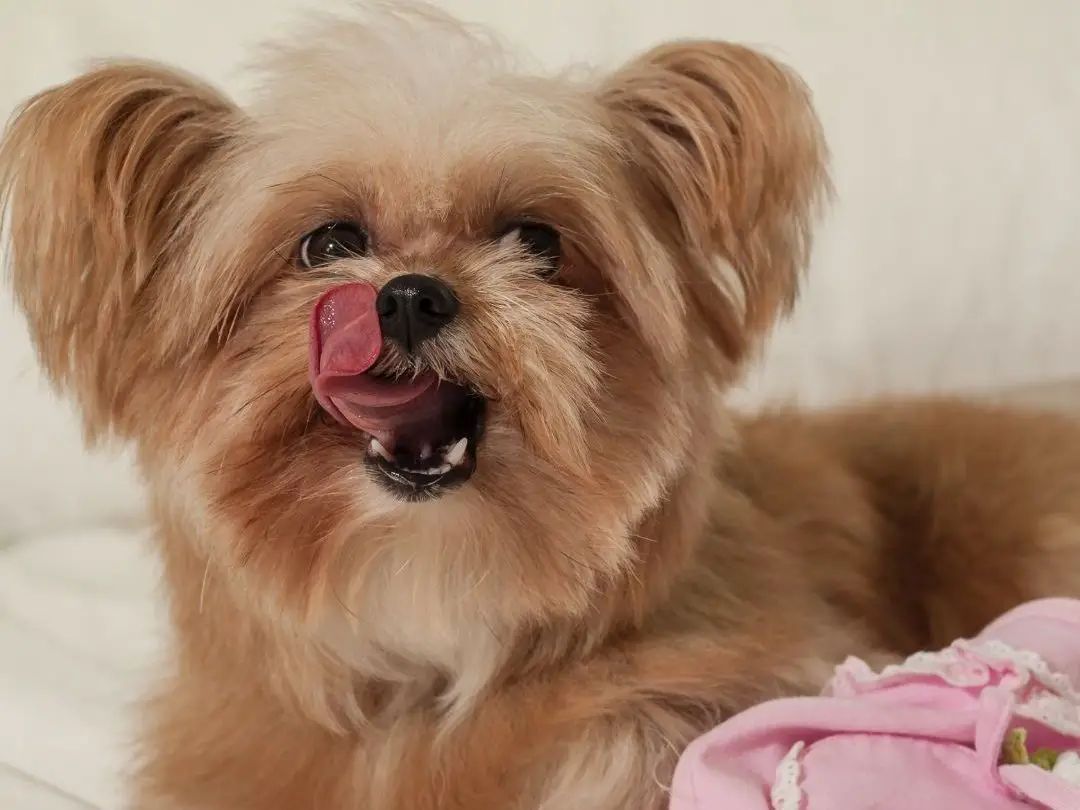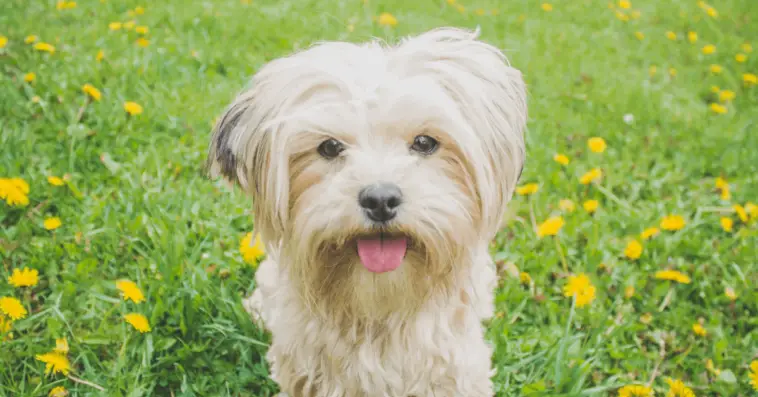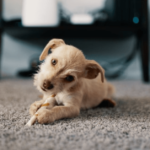Do you notice your dog licking metal and wonder why does my dog lick metal? It is normal behavior for dogs to lick things but it might worry you.
In this article, we will discuss:
- 5 tips to stop your dog from licking metal
- 10 reasons why your dog is licking metal
- And much more…
Why Does My Dog Lick Metal?

Your dog licks metal because of its interesting taste or the cool sensation or because they simply enjoy licking metal. They are attracted to solid surfaces like metal and often end up making a habit of licking them. In case the licking behavior turns obsessive, your dog probably suffers from Pica.
10 Main Reasons Why Does My Dog Lick Metal?
1. Your Dog Has Pica
According to Pet MD, Pica is a condition in dogs that leads them to compulsively ingest non-food items. Some dogs fixate on only one object, while others are attracted to a variety of things. Your dog may be just fixated on metal and licking it.
It is difficult to determine the cause of Pica. It can be anything from nutritional imbalances to health problems like thyroid or diabetes.
To deal with pica, you can address two different approaches: identifying any underlying illness or behavioral problem or in case of none, prevent the pica.
Health problems like nutritional deficiencies can be treated simply by making a few changes in your dog’s diet. Behavioral problems, on the other hand, can be treated by supplying stimulation to your dog in the form of a chew toy like No products found. to keep it busy.
If you can’t find any underlying root cause of your dog’s pica, then you can prevent the pica by eliminating the metal that your dog likes to lick.
2. Your Dog Likes The Taste Of Paint

If the metal object that your dog is licking has been recently painted, your dog might be drawn to it because of its taste. Lead paint is said to have a similar taste to strawberries.
To avoid this excessive licking behavior, you can try spraying the object with No products found. and let your dog lick it. The harmless spray has a bitter taste that dogs find unappealing. If your dog registers the object as something with an awful taste, it will stop licking.
If this trick does not work, then consult with your vet to look for any underlying health conditions.
3. Your Dog Is Licking Something On The Metal
The simplest reason why your dog licks metal might be because there is some spilled food on it. Another reason might be to lick off other pet’s urine to understand the other pet’s information. This is more prominent if you brought home a new pet.
Dogs also lick their own urine sometimes to wipe off the evidence that it peed indoors.
Fun Fact: Dogs eat other animals’ waste in order to get information about the other animal or for perceived nutrition.
According to Dr.Wailani Sung, DVM, these are the reasons why dogs eat poop:
- Nursing
- They like the taste
- It may be feeling unwell
- They have anxiety
- They want your attention
So, you can expect your furry friend to lick the metal, just to lick off his own waste or some other pet’s waste.
Also Read: 12 Reasons Why Your Dog’s Breath Smell Like Poop
4. Your Dog Is Lacking Some Nutrients
Dogs understand that their dietary requirement is fulfilled by organic materials rather than metal objects. However, if your dog is having a nutritional deficiency it will try to lick objects in order to gain the lacking nutrients. In most cases, it is a mineral deficiency, when a dog licks metal objects.
As per the National Research Council nutritional requirements for dogs, the mineral requirement for an adult dog is as follows.
| Mineral | Minimum Requirement |
| Calcium(%) | 1.0 |
| Phosphorus(%) | 0.8 |
| Ca:P ratio | 1:1 |
| Potassium(%) | 0.6 |
| Sodium(%) | 0.3 |
| Chloride(%) | 0.45 |
| Magnesium(%) | 0.04 |
| Iron(mg/kg) | 80 |
| Copper(mg/kg) | 7.3 |
| Manganese(mg/kg) | 5.0 |
| Zinc(mg/kg) | 120 |
| Iodine(mg/kg) | 1.5 |
| Selenium(mg/kg) | 0.11 |
5. Your Dog Just Likes The Taste Of Metal!

Domestic dogs are drawn to metal objects because they enjoy the cool sensation of metal or they simply like the taste of metal. It can sometimes turn into a compulsive behavior which can be problematic for you, while in other cases it is simply a temporary inconvenience.
If the compulsive disorder becomes problematic in your dog, you can take help from a veterinarian behaviorist to correct the behavior.
6. Your Dog Is Anemic
Dogs who are low on red blood cells often tend to lick metal objects because of the iron smell in an attempt to increase their iron levels. If your dog has suddenly started to lick metal, then you should get his red blood cell count checked to see if he is anemic.
Dr. Denish suggests that if you feel like your dog is anemic, you should examine your dog’s eyes and gums. The test results should show pink conjunctiva. If your dog’s eyes are white or pale, it could be an indication of anemia. The gums should also be a healthy pink color as opposed to the pale gums of an anemic dog.
You might be tempted to give iron supplements to your dog to increase the iron levels in your dog but don’t do it.
As per Dr.By Rania Gollakner at VCA hospitals, It is not recommended to give iron supplements to your dog because too much iron will upset his stomach and cause diarrhea and vomiting. It can even cause liver failure in extreme cases.
7. Your Dog Is Curious
Dogs are curious little beings who lick and sniff around to know their environment better. Like humans, dogs do not have hands to pick things up and adore them. Your dog can’t use its paw to lift things up that interest it.
To examine an interesting thing, your dog will use its sense of smell and taste.
As long as the metal object does not have any toxic substances, there is no harm in your dog licking it. However, it is advised to keep your dog not to lick metal because metal attracts a lot of dirt and bacteria that can be harmful to your furry friend.
8. Your Dog Is Bored

Dogs that have no activity to do often fall victim to boredom and find different ways to keep themselves entertained. This includes licking metal because metal surfaces have an appealing taste for dogs. Over time, the licking for entertainment turns into obsessive-compulsive disorder in your pet.
A study by the biologist, Charlotte C. Burn from the University of London says that “Boredom is not the trivial annoyance it is sometimes dismissed as. Animal boredom is biologically plausible: animals avoid monotony and seek stimulation,”
To keep your dog entertained, hide a few treats in your house that your dog can look for after you leave, or hide the treats in a snuffle mat like No products found.. You can also give rotational chew toys to keep your dog busy. Keeping your dog’s bed in a lively corner overlooking a window can also do the trick.
Pet MD suggests these ways to get rid of your dog’s boredom:
- Socializing with the neighbor’s dog
- Interesting exercises
- Food puzzles
- Train your dog to be a service dog
- Enroll your dog into classes
9. Your Dog Has Obsessive-compulsive disorder
According to studies, Obsessive-compulsive disorder can be a result of an underlying condition or separation anxiety. Dogs with Obsessive-compulsive disorder can’t stop repeating the things that they do for no obvious reasons until they are satisfied.
So, if your dog is suffering from Obsessive-compulsive disorder, and has developed a habit of metal licking, there is not much you can do but consult a vet.
Compulsive licking can become dangerous if your dog starts self-mutilating. Some of the signs of self-mutilation are raw skin, loss of hair, and bald spots with wounds.
10. Your Dog Is Stressed

Dogs who don’t get enough mental and physical stimulation can be prone to stress and stress leads to excessive licking of things. Metal is one such thing that your dog may start licking.
The stress may also be a result of separation anxiety that surfaces when you leave your dog alone. Separation anxiety results from the separation of your dog at a young age from its litter or its mother.
As a dog lover, you should spend more time with your dog so that it does not feel stressed or get anxious.
Dr.Diana Bosco states that stress affects dogs in adverse ways like:
- Weakened immune system
- Loss of appetite
- Diarrhea
- Behavioral problems
- Issues with urination
- Exacerbate illness
5 Tips to Stop Your Dog From Licking Metal
1. Treat Pica
If your dog does not have any underlying health condition, then you can take the following measures to treat the behavioral issue of pica.
- Ensure that your dog gets proper mental and physical stimulation
- If you are away from home for a long time, then consider setting up food puzzles and games to avoid making your dog bored
- Remove the objects that your dog licks and are toxic for your dog
- Teach your dog the “leave it” command when it tries to eat an object. Give it tasty treats such as No products found. if it obeys your command.
2. Provide More Chew Toys Or Stimulating toys
If you return home from work to find your dog licking and biting things out of boredom, then you can try making your dog accustomed to playing with simulating toys like No products found. while you are away. This will redirect your dog’s focus from licking to the entertaining toy.
Dr. Katie Grzyb, DVM suggests that a tired dog is a healthy dog. Whenever a dog releases its pent-up energy, it sleeps peacefully at night and a beautiful night’s sleep keeps your dog healthy.
Paws recommend interactive toys and distractive toys for better mental and physical stimulation. Interactive toys like balls and rope toys require your participation. Distraction toys keep your pet busy when you can’t spare time for your dog. These toys include puzzles and chew toys.
Here’s a list of 8 easy & affordable ways to stimulate your dog:
1) Provide tug toys
2) Play fetch games with your dog
3) Engage your dog with stuffed Kong
4) Give him/her frozen treats once in a while
5) Make him/her a digging box and bury toys in it for your dog to find
6) For freshness, change your walk routine
7) Excite your dog by teaching him/her a new trick
8) Socialize him/her by arranging a play date or go to a dog park
3. Play With Your Dog More Often

Shower your pet with affection whenever you are around so that it does not feel lonely or develop separation anxiety. A study shows that separation anxiety is more prominent in male dogs especially those who had been separated from their litter at a young age.
Give proper attention to your pup every now and then because dogs need love to live a healthy life. Not only that, but studies show that dog owners live longer than most people.
Make sure that you play active games with your dog to meet its daily exercise requirements or else the pent-up energy will again be released in unfavorable ways.
Also Read: Should You Walk A Dog With Luxating Patella?
4. Remove Or Cover The Metal

If your dog is licking the metal object excessively, then remove the metal from that place or cover it so that your dog can’t find it. After several futile attempts to find the metal object, your dog will stop looking for it at all.
If you find your dog restless after you hide the metal piece, your dog must be suffering from obsessive-compulsive disorder. You should take advice from your veterinarian to correct this behavior.
5. Make The Metal Unappealing
You can try making the metal unappealing by spraying it with an unpleasant substance that either smells bad or tastes bad. If the metal object is associated with a bad experience, then your dog won’t lick it again.
If that trick does not work, then get your dog checked by a vet for an underlying health issue.
Is It Bad For Dogs To Lick Metal?
It is not bad for dogs to lick metal but you never know what substance might be stuck on the metal object. If your dog ends up licking a toxic substance, your dog’s health can be severely damaged and it can turn out to be fatal as well.
Can Dogs Get Sick From Licking Rust?

Dogs don’t get sick from rust licking because rust is not harmful to dogs when ingested. But, your dog’s mouth can end up getting wounded because rust gets flaky with sharp edges. Rust flakes can harm your dog’s tongue and intestinal tract and gums.
Can Dogs Get Tetanus From Licking Rust?
It is uncommon for dogs to get tetanus from licking rust because rust is actually not where Clostridium tetani live. Rusty metals are often known to be a source of tetanus but that is not always the case. 10% of tetanus in dogs is fatal especially if it catches an infection. Observe your dog for signs of tetanus in case your dog licked a rusty metal object.







